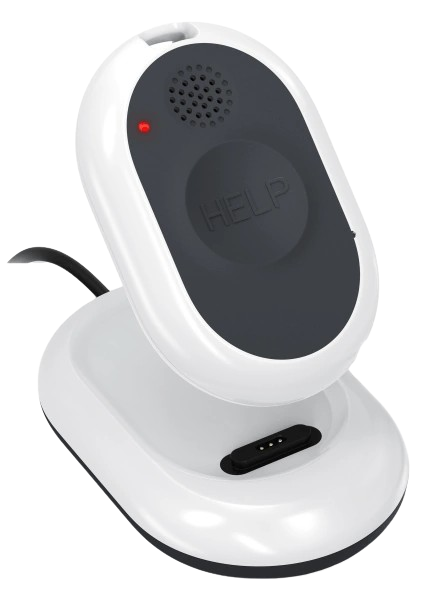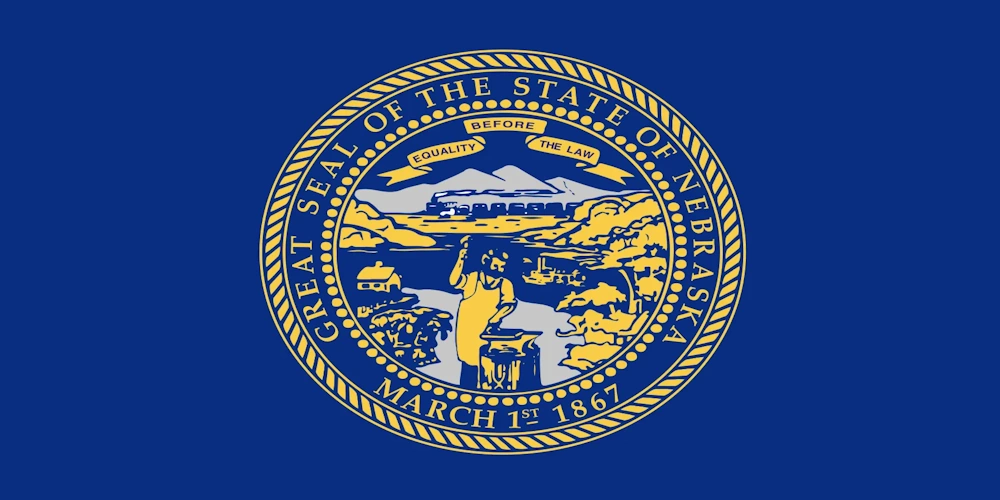North Carolina Lone Worker
Our Safety Policy Guide For Lone Workers In North Carolina
In North Carolina, lone workers are found across industries like agriculture, manufacturing, healthcare, utilities, and public services. These individuals often perform duties without direct supervision or assistance, placing them at increased risk if a workplace incident or emergency occurs. Ensuring these workers remain safe and accounted for is a vital responsibility for employers throughout the state.
North Carolina operates its own OSHA-approved occupational safety and health plan through the North Carolina Department of Labor (NCDOL), Occupational Safety and Health (OSH) Division. This means workplace safety laws in North Carolina are enforced at the state level, covering both private- and public-sector employees. Employers must adhere to standards that are at least as effective as federal OSHA’s, with additional North Carolina-specific rules in some cases.
On This Page
Our Guide To Lone Worker Safety Policy And Legislation In North Carolina
The North Carolina OSH Division is responsible for establishing and enforcing workplace safety regulations, conducting inspections, and providing educational support to employers and workers. While North Carolina does not have a regulation that specifically addresses “lone workers,” the state’s OSH Act requires that all employers furnish a place of employment that is free from recognized hazards that could cause death or serious harm.
Employers with workers operating in isolation must evaluate these risks and implement appropriate safeguards under the General Duty Clause and applicable state and federal standards. For example, tasks involving hazardous chemicals, confined spaces, or high-voltage equipment require added protections when performed alone.
The NCDOL offers consultation programs, compliance assistance, and training resources to help employers understand their responsibilities. These tools can be accessed through the official NCDOL website.
How North Carolina Defines A Lone Worker
While there is no legal definition of a “lone worker” in North Carolina law, the term commonly refers to an employee who performs job duties without direct oversight and who may be unable to call for help during an emergency. These workers may operate in remote areas, during off-hours, or in isolated sections of a job site.
Examples of lone workers in North Carolina include:
- Farmhands and equipment operators in rural settings
- Home health aides and social workers on solo visits
- Night-shift security guards or janitorial staff
- Utility line inspectors or field service technicians
- Public maintenance crews working in remote areas
- Delivery drivers and warehouse workers in off-peak hours
Identifying lone work scenarios is the first step toward effective risk management.
Employing A Lone Worker In North Carolina
Employers must proactively evaluate the hazards specific to lone working arrangements and implement procedures to reduce or eliminate those risks. North Carolina’s diverse economy means these precautions may vary widely across sectors—from agriculture and utilities to healthcare and government.
Best practices for managing lone worker safety include:
- Risk Assessments: Evaluate potential hazards associated with tasks, environments, and working hours.
- Emergency Protocols: Ensure workers have clear instructions and tools to respond to accidents or health emergencies.
- Regular Check-Ins: Use scheduling systems, communication tools, or automated apps to maintain contact.
- Training and Education: Provide workers with training on hazard recognition, emergency procedures, and use of safety equipment.
- Use of Monitoring Technology: Consider lone worker safety apps or wearable alert systems to improve oversight.
By implementing these safety measures, employers in North Carolina can meet their legal obligations and promote a culture of safety that protects both their employees and their business.
Learn How You Can Protect Your Employees With Loneworker.com

With Loneworker.com you can be equipped with the knowledge and the means to protect your employees and protect your business. Contact us today to learn more about how Loneworker.com can protect you and your employees.
How The Safe Lone Worker App Can Protect North Carolina Lone Workers And Employers
The Safe Lone Worker app helps organizations improve the safety of employees working alone by offering real-time monitoring, automated check-ins, panic buttons, and GPS tracking. These features ensure that lone workers remain in contact and can quickly alert supervisors in case of an emergency.
Whether managing a team of field technicians in Charlotte or night custodians in Raleigh, the app enables employers to respond quickly to incidents, comply with NCDOL expectations, and demonstrate a proactive commitment to workplace safety.
North Carolina Lone Worker Policies
North Carolina enforces its workplace safety laws through a state OSHA-approved plan overseen by the NC Department of Labor’s OSH Division. These laws apply to both public- and private-sector employers. While the state does not have a regulation specifically for lone workers, existing standards and the General Duty Clause require employers to identify and mitigate any hazards associated with isolated work.
This content is intended for informational purposes only and should not replace legal counsel or official regulatory guidance.
North Carolina Lone Worker Resources
OHS Contact Centre
- 1-866-415-8690
CDC / NIOSH
- 800-232-4636

Affordable Monitoring For Lone Workers In North Carolina

-
 Monitoring Your Employees' Safety
Monitoring Your Employees' Safety
-
 GPS Tracking And Monitoring
GPS Tracking And Monitoring
-
 Man Down Panic Alerts
Man Down Panic Alerts
-
 24/7 Protection Anywhere
24/7 Protection Anywhere
Lone Worker Legislation
Lone Worker Safety Policies And Legislation By State
-
 Alabama State Safety Policies And Legislation
Alabama State Safety Policies And Legislation
-
 Alaska State Safety Policies And Legislation
Alaska State Safety Policies And Legislation
-
 Arizona State Safety Policies And Legislation
Arizona State Safety Policies And Legislation
-
 Arkansas State Safety Policies And Legislation
Arkansas State Safety Policies And Legislation
-
 California State Safety Policies And Legislation
California State Safety Policies And Legislation
-
 Colorado State Safety Policies And Legislation
Colorado State Safety Policies And Legislation
-
 Connecticut State Safety Policies And Legislation
Connecticut State Safety Policies And Legislation
-
 Delaware State Safety Policies And Legislation
Delaware State Safety Policies And Legislation
-
 Florida State Safety Policies And Legislation
Florida State Safety Policies And Legislation
-
 Georgia State Safety Policies And Legislation
Georgia State Safety Policies And Legislation
-
 Hawaii State Safety Policies And Legislation
Hawaii State Safety Policies And Legislation
-
 Idaho State Safety Policies And Legislation
Idaho State Safety Policies And Legislation
-
 Illinois State Safety Policies And Legislation
Illinois State Safety Policies And Legislation
-
 Indiana State Safety Policies And Legislation
Indiana State Safety Policies And Legislation
-
 Iowa State Safety Policies And Legislation
Iowa State Safety Policies And Legislation
-
 Kansas State Safety Policies And Legislation
Kansas State Safety Policies And Legislation
-
 Kentucky State Safety Policies And Legislation
Kentucky State Safety Policies And Legislation
-
 Louisiana State Safety Policies And Legislation
Louisiana State Safety Policies And Legislation
-
 Maine State Safety Policies And Legislation
Maine State Safety Policies And Legislation
-
 Maryland State Safety Policies And Legislation
Maryland State Safety Policies And Legislation
-
 Massachusetts State Safety Policies And Legislation
Massachusetts State Safety Policies And Legislation
-
 Michigan State Safety Policies And Legislation
Michigan State Safety Policies And Legislation
-
 Minnesota State Safety Policies And Legislation
Minnesota State Safety Policies And Legislation
-
 Mississippi State Safety Policies And Legislation
Mississippi State Safety Policies And Legislation
-
 Missouri State Safety Policies And Legislation
Missouri State Safety Policies And Legislation
-
 Montana State Safety Policies And Legislation
Montana State Safety Policies And Legislation
-
 Nebraska State Safety Policies And Legislation
Nebraska State Safety Policies And Legislation
-
 Nevada State Safety Policies And Legislation
Nevada State Safety Policies And Legislation
-
 New Hampshire State Safety Policies And Legislation
New Hampshire State Safety Policies And Legislation
-
 New Jersey State Safety Policies And Legislation
New Jersey State Safety Policies And Legislation
-
 New Mexico State Safety Policies And Legislation
New Mexico State Safety Policies And Legislation
-
 New York State Safety Policies And Legislation
New York State Safety Policies And Legislation
-
 North Carolina State Safety Policies And Legislation
North Carolina State Safety Policies And Legislation
-
 North Dakota State Safety Policies And Legislation
North Dakota State Safety Policies And Legislation
-
 Ohio State Safety Policies And Legislation
Ohio State Safety Policies And Legislation
-
 Oklahoma State Safety Policies And Legislation
Oklahoma State Safety Policies And Legislation
-
 Oregon State Safety Policies And Legislation
Oregon State Safety Policies And Legislation
-
 Pennsylvania State Safety Policies And Legislation
Pennsylvania State Safety Policies And Legislation
-
 Rhode Island State Safety Policies And Legislation
Rhode Island State Safety Policies And Legislation







